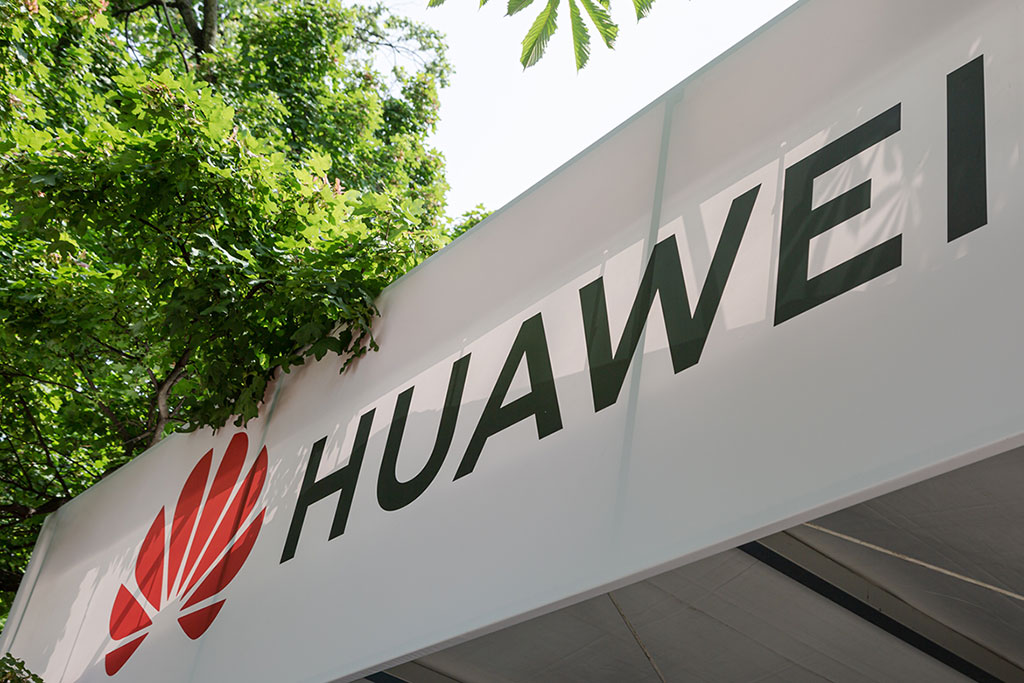
Let’s talk web3, crypto, Metaverse, NFTs, CeDeFi, meme coins, and Stocks, and focus on multi-chain as the future of blockchain technology. Let us all WIN!
The impact of the commercialization of Huawei Cloud Web3 Node Engine Service is expected to be felt over time as more Web3 and digital assets users enjoy seamless services across different blockchains.
 Edited by Julia Sakovich
Updated
3 mins read
Edited by Julia Sakovich
Updated
3 mins read

Huawei Technologies Co Ltd, a leading Chinese multinational technology corporation that focuses on telecommunication products, has announced that the Web3 Node Engine Service (NES), a blockchain node engine platform, is now available for commercial applications. As of the official launch of the NES platform, more than eight layer one (L1) and Layer Two (L2) blockchains are supported. Some of the notable chains supported by the Huawei Cloud Web3 Node Engine Service include Ethereum (ETH), BNB Chain, Polygon (MATIC) network, and Arbitrum (ARB). Consequently, decentralized financial (DeFi) developers can build scalable and secure web3 protocols that are reliable with 99.95 percent uptime.
Furthermore, the Huawei Cloud Web3 Node Engine Service is connected to the MEV-boost, an implementation of the prosper-builder separation (PBS) focused on Ethereum’s proof-of-stake (PoS). Essentially, Ethereum validators that run the MEV-boost can maximize their staking rewards by auctioning their blockspace to an open market of DeFi developers.
#HuaweiCloud #Web3 Node Engine Service NES is officially commercialised! It supports 8+ mainstream public chain networks, with 99.95% node online reliability, connects to MEV-Boost, reduces development cost by 30%+, and increases node income by 10%+. @ethereum @trondao… pic.twitter.com/W1djcsg7V3
— Huawei Cloud (@HuaweiCloud1) January 19, 2024
The Web3 Node Engine Service was developed by the Huawei Cloud to simplify blockchain management amid the mainstream adoption of digital assets and decentralized applications (Dapps). According to the company, the NES product is currently available in the Singapore region intending to scale to other markets with time. Furthermore, there are global geopolitical issues to be handled despite blockchain technology being decentralized and largely free from government interference.
As for the decentralized application developers and users, Huawei Cloud’s NES can assist in configuring blockchain nodes that are secure and scalable. On the other hand, the Huawei Cloud’s NES can be tapped by the staking node carriers to run network validators.
“NES abstracts away the complexities for network validators and DApp developers. You can run full nodes and staking nodes on NES for higher performance, efficiency, and rewards, without worrying about the underlying infrastructure,” the company noted.
The commercialization of Huawei Cloud’s NES is a major milestone towards the mass adoption of digital assets by institutional investors and retail traders. Furthermore, the rise in the use of artificial intelligence (AI) in blockchain technology has necessitated the implementation of vast infrastructure from the cloud computing industry. Meanwhile, Huawei is gradually adopting blockchain technology and digital assets to ensure a sustainable future.
The impact of the commercialization of Huawei Cloud Web3 Node Engine Service is expected to be felt over time as more Web3 and digital assets users enjoy seamless services across different blockchains. Furthermore, the recent approval of spot Bitcoin ETFs in the United States will attract more institutional investors and countries to adopt the cryptocurrency market and related services. Consequently, the crypto liquidity will significantly improve over time as more players enter the nascent web3 industry.
Disclaimer: Coinspeaker is committed to providing unbiased and transparent reporting. This article aims to deliver accurate and timely information but should not be taken as financial or investment advice. Since market conditions can change rapidly, we encourage you to verify information on your own and consult with a professional before making any decisions based on this content.

Let’s talk web3, crypto, Metaverse, NFTs, CeDeFi, meme coins, and Stocks, and focus on multi-chain as the future of blockchain technology. Let us all WIN!





